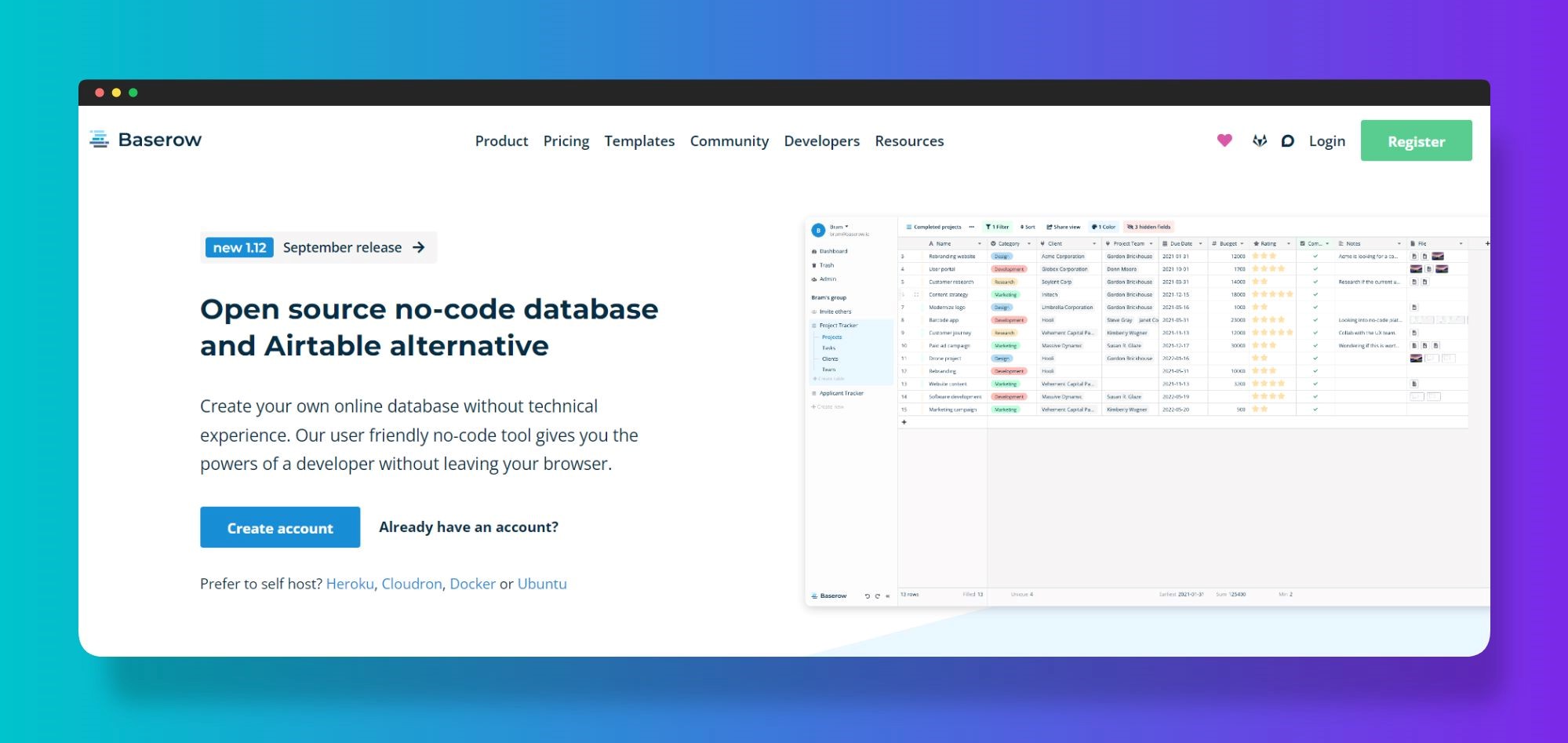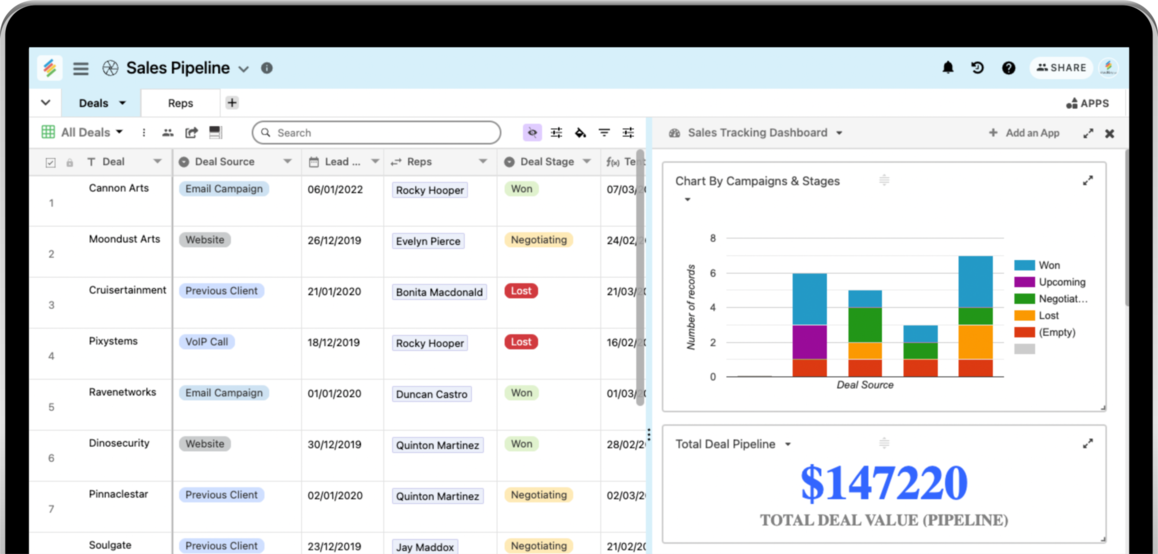Discovering the Benefits of Scalable Data Sources That Call For No Coding Skills for Reliable Information Management Solutions
The development of scalable data sources that remove the need for coding abilities offers a transformative possibility for organizations seeking efficient information administration solutions. As we take into consideration the effects of such advancements, it ends up being critical to take a look at exactly how they can reshape the landscape of data management and drive sustainable development in a competitive environment.
Boosted Access for Individuals
Improved access for users is an essential element of scalable data sources, guaranteeing that data monitoring systems are straightforward and user-friendly. In a period where data-driven choices are paramount, ease of access allows a bigger series of individuals, including those without comprehensive technological knowledge, to involve with database systems effectively. This democratization of data accessibility helps with boosted cooperation throughout divisions, empowering employees to make and draw out understandings informed choices.
User-friendly interfaces, such as drag-and-drop attributes and visual information representation, simplify complex information interactions. These improvements reduce the knowing contour related to conventional database monitoring, making it possible for customers to concentrate on leveraging information instead of grappling with technological complexities. Additionally, scalable databases often incorporate customizable dashboards and real-time analytics, providing users with prompt insights customized to their specific needs.

Cost-Effectiveness and Resource Savings
Effective data management not only rests on access however likewise on cost-effectiveness and resource financial savings. Scalable data sources designed for customers with no coding abilities dramatically lower financial problems usually linked with typical database administration systems. By getting rid of the need for specialized programs expertise, organizations can allocate their sources more successfully, concentrating funds on core organization tasks instead than extensive training or working with skilled personnel.
Furthermore, these data sources typically utilize cloud-based remedies, which even more decrease costs connected to hardware and maintenance. Organizations can scale their database options according to their needs, preventing the expenditures incurred from over-provisioning resources. This flexibility means organizations can adapt to transforming needs without incurring unnecessary costs, causing substantial long-term cost savings.
In addition, straightforward user interfaces streamline data access and monitoring procedures, reducing the moment invested in administrative jobs. This performance equates into labor price savings, permitting groups to concentrate on strategic initiatives rather than routine upkeep. Overall, adopting scalable data sources that need no coding abilities cultivates a more economical approach to data management, enabling companies to optimize their resources while preserving high levels of operational effectiveness.
Improved Collaboration Throughout Teams
Moreover, scalable databases facilitate seamless communication among employee. With user-friendly user interfaces that call for no coding skills, workers can quickly create, modify, and share records or control panels tailored to their certain needs. This democratization of information equips non-technical users to add understandings, improving the collective atmosphere.
Furthermore, these databases sustain concurrent access, enabling numerous users to deal with the same dataset concurrently. This function boosts performance, as groups can take part in joint information analysis without the danger of version control concerns. The capacity to leave comments or notes directly within the database additionally promotes dialogue and makes clear data interpretations.
Streamlined Information Monitoring Processes
In today's data-driven environment, companies identify the requirement of streamlined information administration processes to optimize efficiency and precision. By leveraging scalable data sources that call for no coding skills, businesses can simplify their data handling and lower the complexities normally linked with traditional database systems. This go to website accessibility encourages non-technical individuals to engage directly with data, facilitating quicker decision-making and lowering dependence on try this website specialized IT personnel.
Structured data administration processes boost operations by automating routine tasks such as information access, recognition, and coverage. Automated information assimilation ensures that details from numerous sources is accumulated effortlessly, removing silos and cultivating a merged view of essential service metrics (no-code). User-friendly user interfaces enable personnel to adjust data conveniently, enabling them to create understandings that drive calculated initiatives without the need for extensive training.
This efficiency not just speeds up functional processes but additionally minimizes the potential for human mistake, making certain that data stays dependable and accurate. Inevitably, structured data administration processes via scalable databases bring about enhanced efficiency, allowing organizations to concentrate on core tasks while making sure that their information monitoring methods are effective and reliable.
Scalability for Expanding Organizations

For expanding business, the capacity to scale up or down is essential. A scalable database can manage an influx of information created from new consumers, items, or services, guaranteeing that company procedures continue to be uninterrupted. These databases supply the capability to handle peak loads successfully, which is vital during durations of fast development or seasonal spikes.
Additionally, many scalable data source services are designed with straightforward interfaces that need no coding abilities, encouraging non-technical team to manage data efficiently (no-code). This democratization of information administration allows companies to allocate sources tactically and minimize dependence on specialized IT personnel
Eventually, embracing a scalable database not only boosts operational efficiency yet also promotes a setting where services can introduce and progress without the constraints of typical data source systems. This flexibility settings companies for long-lasting success in today's competitive landscape.
Final Thought
To conclude, scalable databases that call for no coding skills give considerable benefits for reliable data administration. These systems improve ease of access for non-technical individuals, reduce functional prices, and promote collaboration throughout groups. By improving data monitoring processes and providing scalability for Your Domain Name growing services, such solutions enable companies to adjust to changing needs successfully. Eventually, the fostering of these user-friendly databases fosters development and placements services for long-term success in a dynamic atmosphere.
Improved accessibility for individuals is a vital element of scalable databases, making certain that data monitoring systems are straightforward and intuitive.User-friendly interfaces, such as visual information and drag-and-drop functions representation, streamline intricate information interactions. On the whole, adopting scalable databases that need no coding abilities cultivates an extra economical strategy to data administration, allowing companies to optimize their sources while maintaining high levels of functional effectiveness.
By leveraging scalable databases that require no coding abilities, businesses can streamline their data handling and minimize the complexities typically linked with traditional database systems - no-code.Structured information administration processes boost operations by automating routine tasks such as information entrance, recognition, and coverage
Comments on “Produce Open System Databases Easily with the most effective No-Code Tools Available”